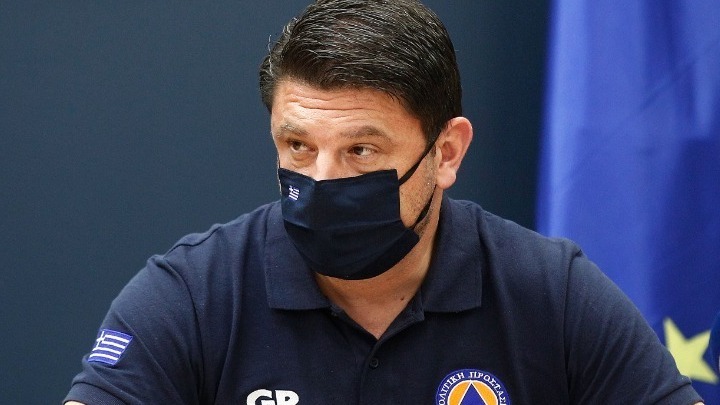Food, tourism staff in six tourist spots in Greece obliged to take twice-weekly Covid-19 tests

Unvaccinated employees in food and tourism sectors in six regions of Greece - including Mykonos, Santorini and Paros - will have to undergo two coronavirus tests per week as of Saturday, Deputy Minister for Civil Protection and Crisis Management Nikos Hardalias said on Thursday, following sharp spikes in infections in seven days.
During a live briefing, Hardalias said the new rule included the regional units of Mykonos, Rethymno and Iraklio (the latter two on Crete), and the towns proper on the islands of Ios, Thera (Santorini) and Paros.
Employees in food and tourism sectors - including passenger ships - who have not been vaccinated will be administered a rapid test and a self-test every week, and the results will be entered in the Ergani labor platform. National Public Health Organization mobile units will be sent to these areas to provide testing, Hardalias said.
The minister provided the infection rates for these regions between July 7 and 14: On Mykonos, from 77 on July 7 to 318 on July 14; in Rethymno, from 384 to 782; in Iraklio, from 310 to 878; in Ios, from 9 to 55; on Santorini, from 24 to 56; and on Paros, from 9 to 72. "We can avoid taking specific restrictive measures if we all coordinate [...] and isolate the clusters and spread in those regions," Hardalias said. He added that the rules are not meant to target specific businesses or manners of entertainment or having fun, "which we all need," but it's necessary to observe certain measures in order to protect the public.
Hardalias also announced that camping sites would require a negative rapid or PCR test unvaccinated staff and arriving clients, and to be subjected to weekly tests (staff will need to take two tests per week). In addition, no visitors will be allowed except for emergencies.
Spike in infections among young not resulting in higher ICU rates
The rapid escalation of new coronavirus infections is spreading in all segments of society, doctor Vana Papaevangelou said on Thursday during a live briefing on the pandemic, attributing the rise to the Delta variant.
All Greek regions showed a sharp rise inthe last three weeks, the coronavirus health committee member said, adding that "most infections occur from young people returning from holidays and bringing the virus to their families." The median age of newly diagnosed infections is 26 years. One in two people hospitalized is under 54 years of age, she added.
To a question on whether those returning from islands are obliged to present a negative rapid test before boarding a ship, she said the committee has found it very difficult to implement, suggesting instead that people carry out self-tests and declare results online.
Doctor Gkikas Magiorkinis said at the briefing that the rise in infections is true of all Europe. The number of younger people being hospitalized has risen to 100 per day, "but there is no significant rise in admission to ICUs so far," he added.
Alternate Health Minister Vassilis Kontozamanis said that so far over 75% of doctors and over 69% of nursing staff have been vaccinated.

